Emmet Sullivan’s Federal Career is...
The wording of the DC Circuit's order directing Judge Sullivan to personally respond to Sidney Powell's writ shows it is deeply troubled by Judge Sullivan's actions. #appellatetwitter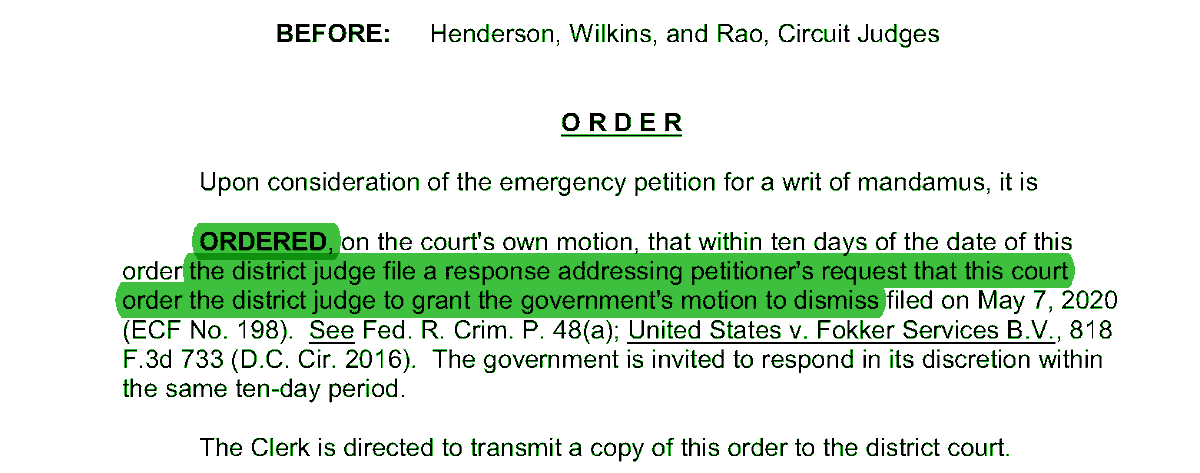

Rule 21(b)(1) allows the DC Circuit to deny the writ petition outright, without asking for a response. This is what happens with the vast majority of writ petitions. #appellatetwitter

If the appellate court instead orders a response under Rule 21(b)(1), it shows it is concerned and wants to hear more about the matter. #appellatetwitter
If the DC Circuit ordered a response and did nothing else, that alone would be a huge deal. But the DC Circuit didn't stop there. #appellatetwitter
Rule 21(b)(4) states that the appellate court "may invite or order the trial-court judge to address the petition or may invite an amicus curiae to do so." #appellatetwitter

The appellate court is not REQUIRED to order the trial-court judge to address the matter--it has the authority to do so, but doesn't need to exercise it. #appellatetwitter

Even if it wants to hear from the trial judge, the appellate court can simply "invite"--that is, request, or ask--the trial judge to respond. It does not have to ORDER the judge to respond. #appellatetwitter

And even if the appellate court orders the trial court judge to respond, it can avoid requiring the judge to personally defend the action under challenge by appointing a lawyer as amicus curiae to defend the judge's actions. #appellatetwitter

This is what the DC Circuit did in the Fokker case--the main case Sidney Powell relies upon in her writ. See the highlighted portion of the fourth image below. #appellatetwitter

In Fokker, the DC Circuit said, "Because both parties seek to overturn the district court's denial of their joint motion to exclude time, we appointed amicus curiae to present arguments defending the district court's action." #appellatetwitter

The DC Circuit, in ordering Judge Sullivan to respond to Sidney Powell's writ petition, could have easily appointed a lawyer as amicus to do so. #appellatetwitter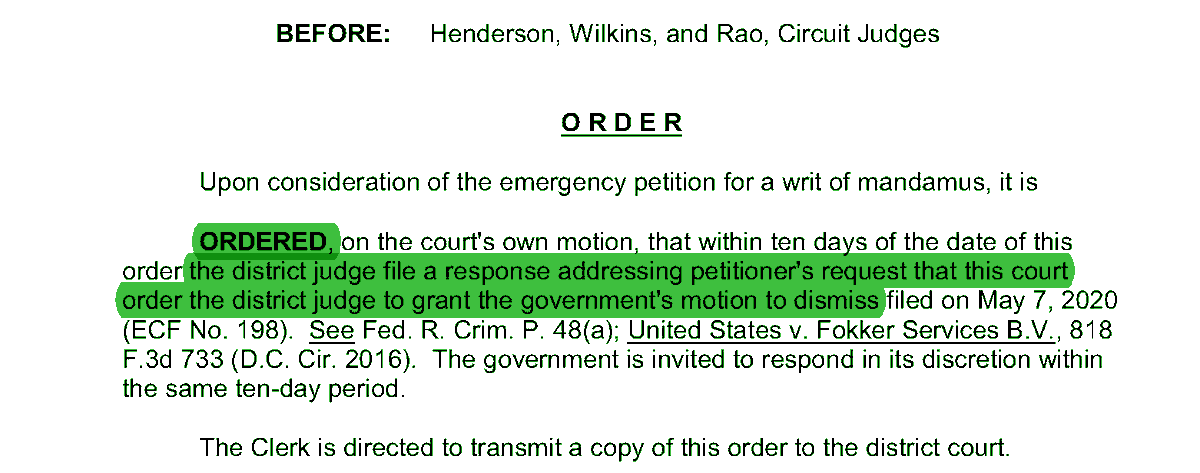

Note that an amicus appointed by the DC Circuit to defend Judge Sullivan would have had a job entirely different from John Gleeson's job as amicus appointed by Judge Sullivan to oppose the DOJ's motion to dismiss. #appellatetwitter
Had the DC Circuit appointed amicus, that lawyer's job would have been to present legal arguments defending Judge Sullivan's refusal to grant the DOJ's dismissal motion, NOT legal arguments purporting to show why the DOJ's motion should not be granted. #appelatetwitter
Instead, the DC Circuit ordered Judge Sullivan to PERSONALLY respond and defend his actions, without an amicus attorney to do it for him. #appellatetwitter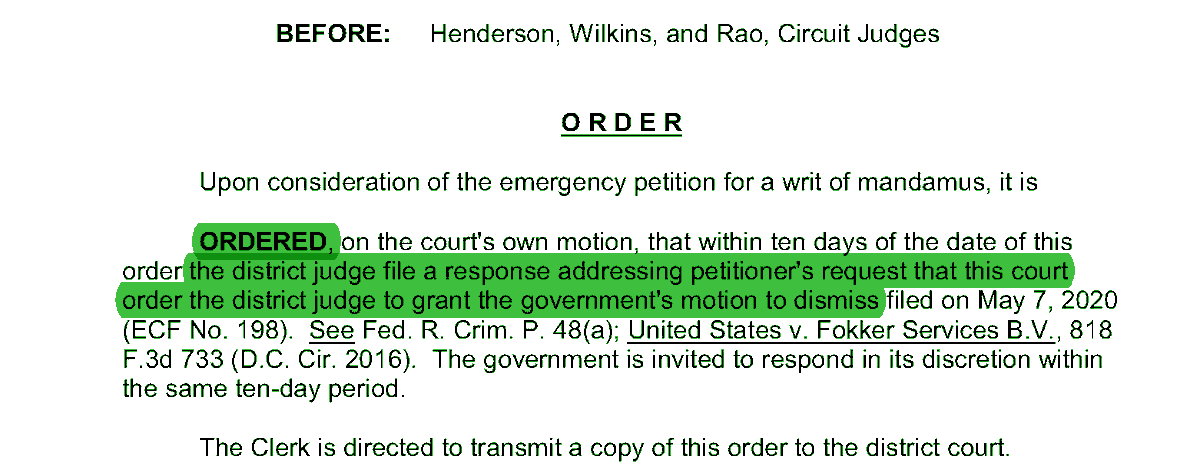

This means that Judge Sullivan (and presumably his clerks) will have to PERSONALLY submit written briefing trying to legally justify his refusal to dismiss the Flynn case. #appellatetwitter (Update: He will try to use a hired defense lawyer)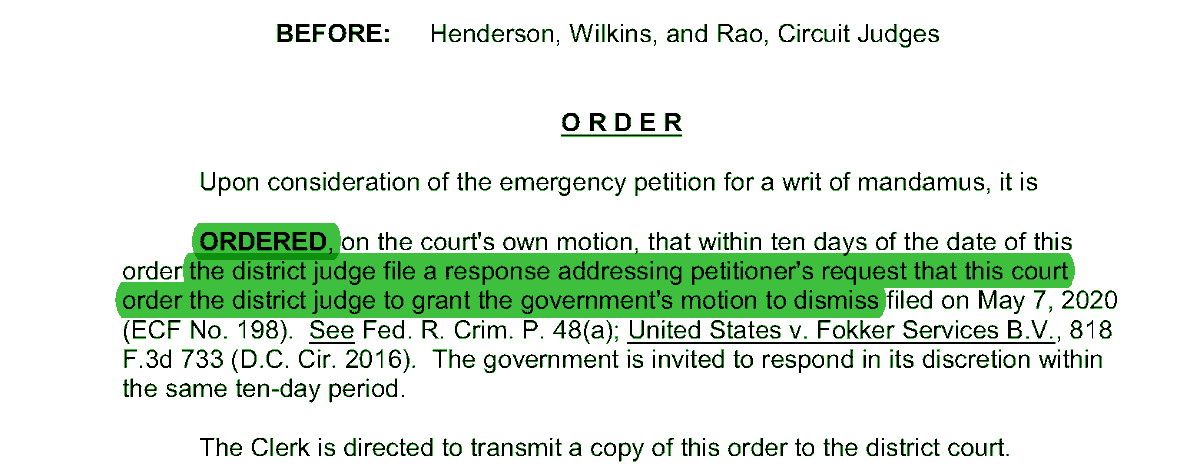

The DC Circuit is thus making Judge Sullivan--a lifetime federal judge--publicly and directly explain to them his actions. #appellatetwitter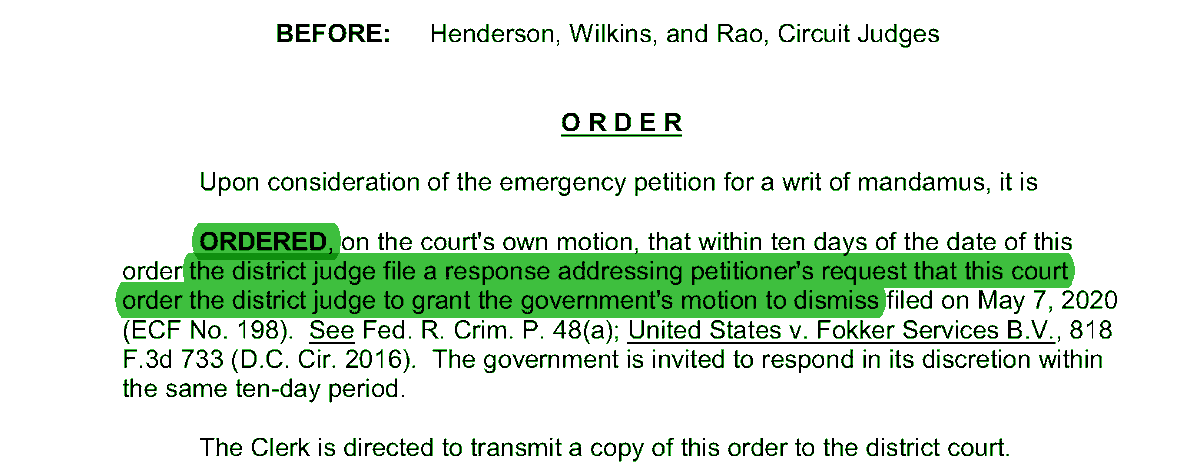

In short, of all the options available to the DC Circuit for ruling on Sidney Powell's writ, the DC Circuit, chose the most extreme, rare, and drastic of them. #appellatetwitter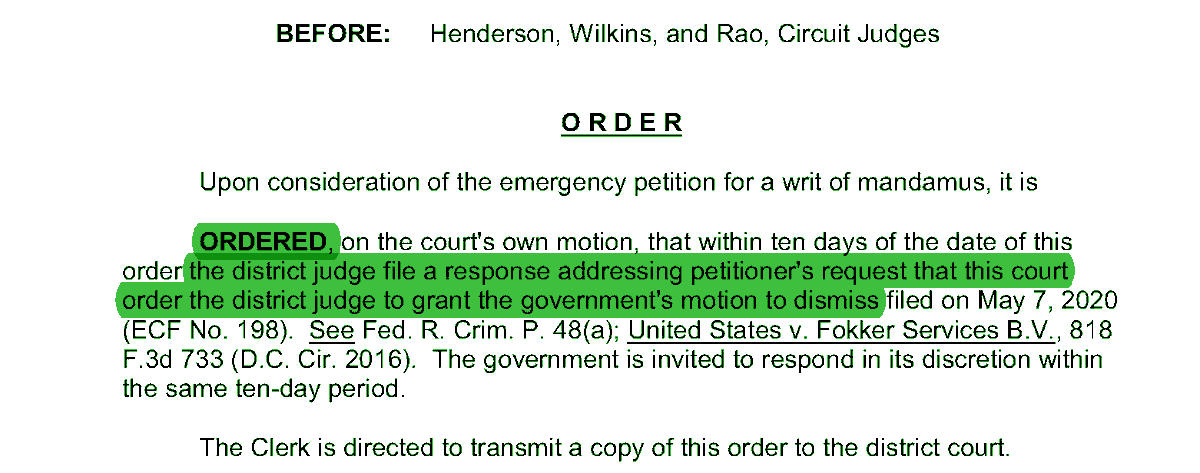

It has ordered (not requested) Judge Sullivan to personally (and not through appointed amicus) respond and defend his actions to them. #appellatetwitter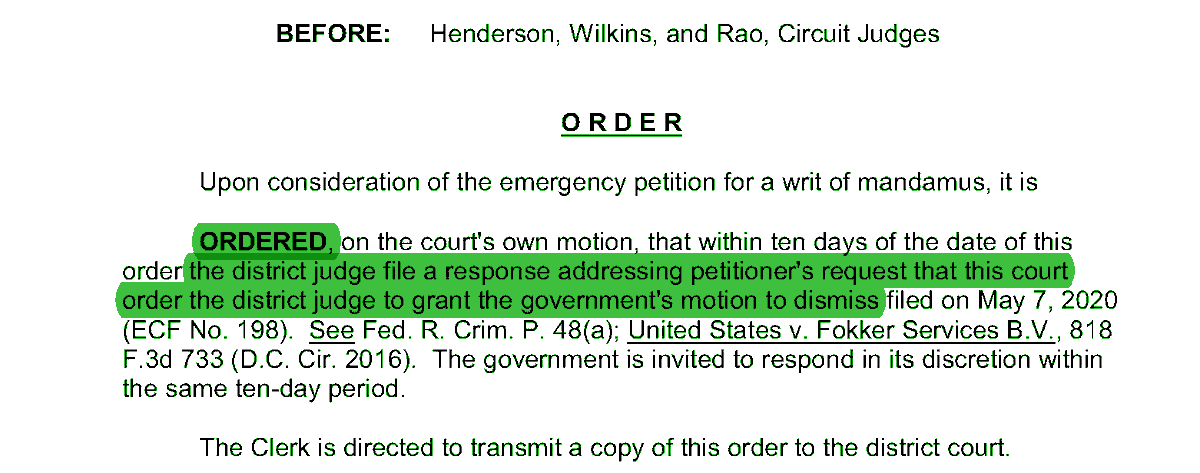



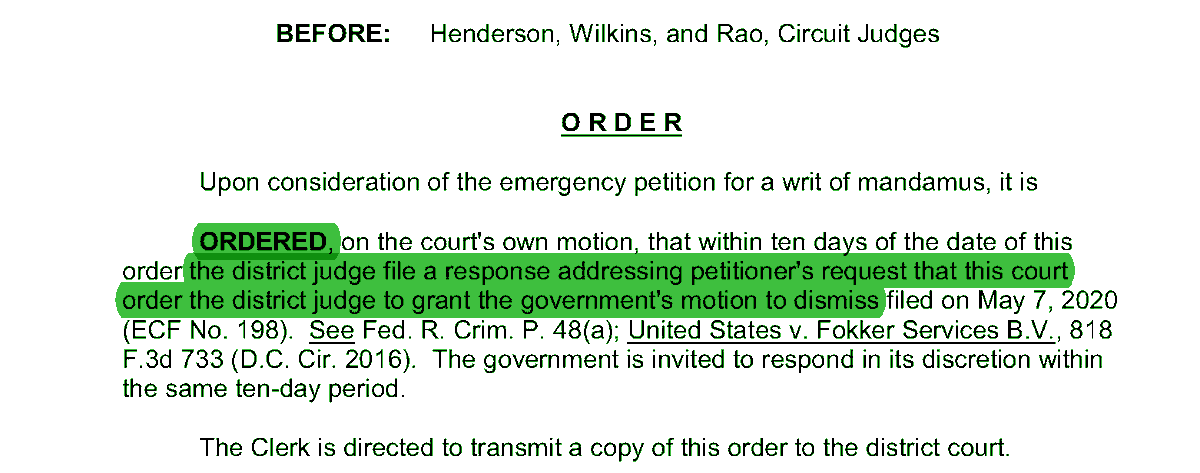



Post a Comment